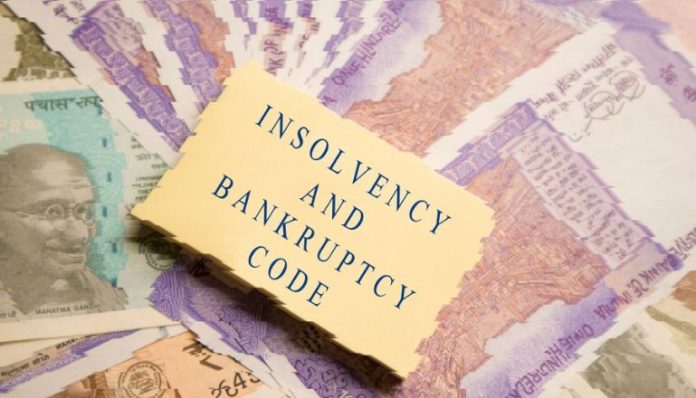This article is written by Arshnit Sandhu, pursuing a Certificate Course in Insolvency and Bankruptcy Code from LawSikho.
Table of Contents
Introduction
The Micro, Small and Medium Enterprises (MSMEs), known as the strength of the Indian economy are defined under Section 7 of the Micro, Small and Medium Enterprises Development (MSMED) Act, 2007. It is the second most employment generator after the agriculture sector and 8% contributor in the country’s Gross domestic product (GDP). According to the recent study. It is believed that the MSMEs will contribute around 50% to India’s GDP by 2024.
Therefore, the government and Insolvency law Committees set up by the Ministry of Corporate Affairs (MCA) are at the final stage of implementation of the PrePacked scheme of corporate insolvency, a special framework for MSMEs to protect them from financial distress, liquidation due to the pandemic.
Before proceeding with the read, it is important for us to know the meaning of the Prepacked scheme.
Prepacked scheme of the Corporate Insolvency
The PrePack scheme of corporate insolvency is a fast track, out of the court insolvency resolution plan which is formulated and agreed upon by the corporate debtor and its creditors before the initiation of the formal proceedings.
In other words, It is a quasi formal procedure which integrates the essence of an out of court private restructuring and that of a formal bankruptcy.
As India is yet to implement this scheme, different countries like the UK and US have implemented it long before.
The Association of Business Recovery Professionals in the UK has defined prepack plan as, “an arrangement under which the sale of all or part of a company’s business or assets is negotiated with a purchaser prior to the appointment of an Administrator, and the Administrator effects the sale immediately on, or shortly after, his Appointment”.
The RBI’s Report of the Expert Committee on MSMEs has also recommended that due to lack of sophistication on the part of MSMEs, IBC should provide for out-of-court assistance proceedings. Therefore, due to the need of the time, the PrePacked scheme of corporate insolvency will be notified under Section 240A inserted by Insolvency and Bankruptcy (2nd Amendment) Act, 2018 which empowers the central government to exempt or include the MSMEs from the provisions of Insolvency and Bankruptcy Code with such modifications as required.
The draft scheme has specified the following points:
- The draft scheme is said to have a timeline of 90 days for the completion of insolvency procedure, instead of a maximum 330 days in the Code.
- The insolvency procedure can be initiated by MSMEs itself and not the creditors but the approval must be taken from an unrelated creditors with at 25% outstanding claims.
- This scheme is for the establishment with annual turnover of less than 250 crores and investment less than 50 crores.
- The scheme will be a shift from normal insolvency procedure as the promoter will run the affairs of the company with the assistance of resolution professional (RPs) instead of the creditors
- It will aim to exclude MSMEs from Section 29A of IBC which restricts the promoters from submitting a resolution plan. As only the promoters might be interested in the MSMEs and not any other resolution applicants, this measure will save the MSMEs from liquidation.
- The role of resolution professional will not be restricted to supervision and conduct of the insolvency process.
- No public announcement is necessary for the commencement of the insolvency process by the resolution professional.
- The MSMEs must provide an updated list of outstanding claims and a draft information memorandum certified by the chairman, to the resolutional professional on the date of his appointment.
The main aim of the Pre-Packaged insolvency resolution plan is to be cost effective for disrupted business of MSMEs due to the pandemic. It also safeguards the interest of both the corporate creditor and debtor by paying off the debts due to the former, and maintaining the sustainability of the business of the latter at the same time.
Different measures for MSMEs taken by government
Due to the covid-19 pandemic, there is more emphasis on self reliance economy than dependence on other countries. This self efficient and self reliance business model in india has shifted the focus to the Micro, Small and medium Enterprises (MSME) sector.
To boost the MSMEs sector and economy, the prime minister had previously announced a Rs. 20 lakh crore fiscal package. The introduction of the 3 lakh crore Emergency Credit Liquidity Guarantee scheme has been a positive step as till now Rs.20.5 lakh crore has been sanctioned and Rs. 1.52 lakh crore disbursed to about 61 lakh borrowers that included MSMEs, professionals and others.
According to the power conferred to central government by the proviso of Section 4 of the IBC, on March 24, 2020, the Ministry of Corporate Affairs vide notification, specified the minimum default amount to be Rs. 1 crore instead of previous amount of Rs. 1 lakhs. This measure was taken to avoid MSMEs to default because the covid-19 outbreak and national lockdown forced the MSMEs to incur losses tremendously.
The government under Article 123 of the Indian Constitution took various steps to eliminate the hardship faced by the MSMEs by promulgating the Ordinance Insolvency and Bankruptcy Code (Amendment) Ordinance on June 5, 2002.
The underline features of the ordinance are as follows:
- The initiation of corporate insolvency process by financial creditors (Section 7), operational creditors (Section 9), corporate applicant (Section 10) of the Insolvency and Bankruptcy Code has been suspended in case of defaults on or after March 25, 2020
- The time limit of suspension of Corporate insolvency resolution Process is yet to be notified. As per the provision of the article 123, the time limit of an ordinance is 6 months and may extend to 1 year, i.e March 24, 2021.
- Application for the initiation of corporate insolvency process for the corporate debtor can be accepted in two cases : (a) if the default is before March 25, 2020, (b) the default amount is more than 1 crore.
This ordinance is to help the distressed MSMEs to revive them from financial, operational instability as it prevents the financial and operational creditor from dragging them in the insolvency proceeding for some time.
Conclusion
Insolvency and Bankruptcy Code being only four years old is dynamic in nature and is still evolving. To safeguard the interest of Micro, Small, and Medium enterprises, the government along with Insolvency and Bankruptcy Board of India is trying to give various relief via ordinances and notification. Considering the amount of debt, the recovery rate as well as the time taken to realize the amount, the cost incurred in recovery proceedings is a considerable factor for MSMEs to decide whether to pursue such debt through IBC route or not. Therefore, an enabling provision in IBC for Pre Pack Insolvency resolution Process will encourage the MSMEs to trust IBC route more which will result in overall development of the economy in these stressed times.
LawSikho has created a telegram group for exchanging legal knowledge, referrals and various opportunities. You can click on this link and join:
 Serato DJ Crack 2025Serato DJ PRO Crack
Serato DJ Crack 2025Serato DJ PRO Crack











 Allow notifications
Allow notifications


